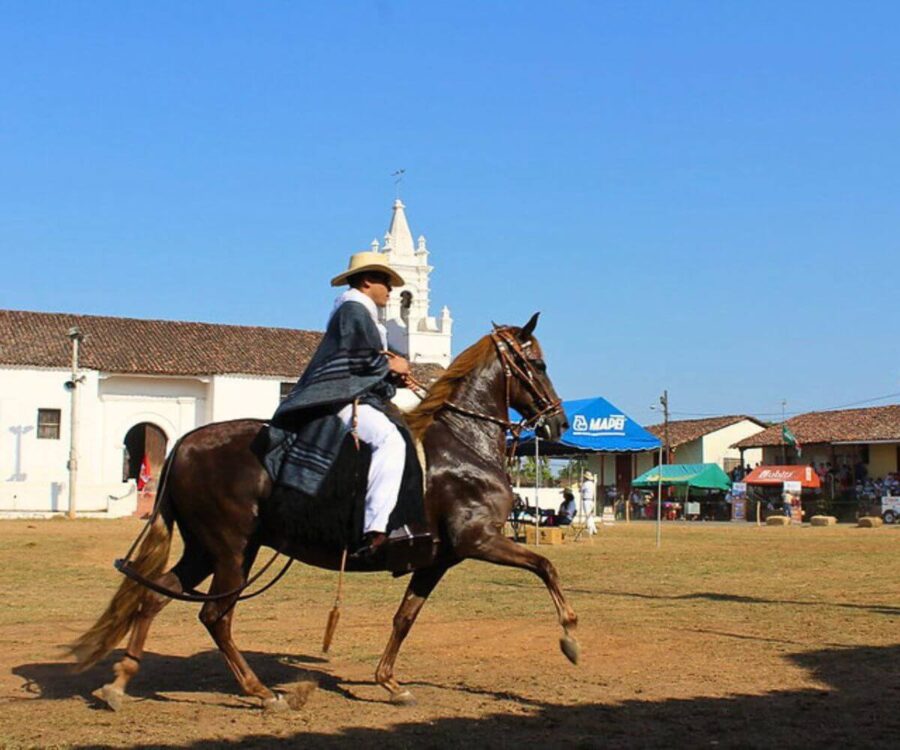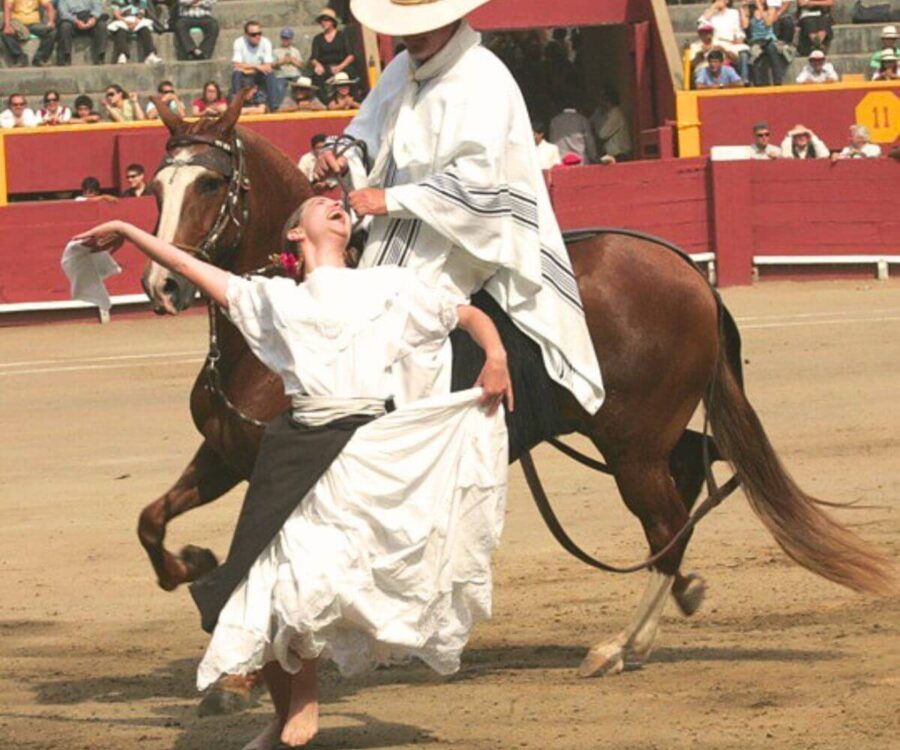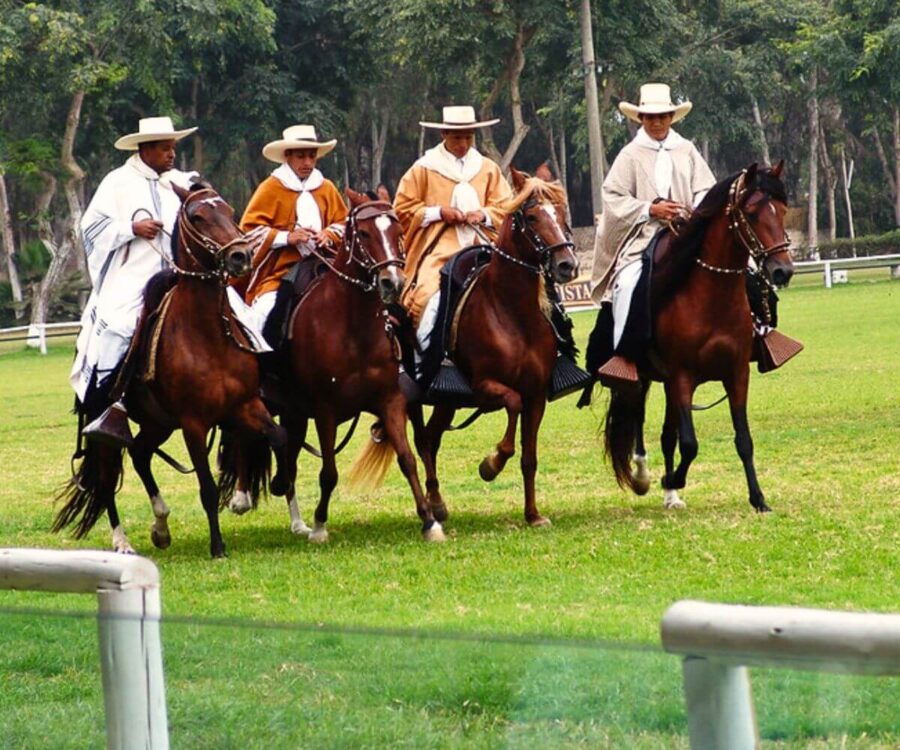The Peruvian Paso horse is a proud representative of national identity and has gained admiration worldwide for its unique gait and history. This breed symbolizes part of Peruvian culture that is still highly valued in Peru and other countries. Learn more about its origin and characteristics.
Table of Contents
The Peruvian Paso horse originates from horses brought by the Spanish. This breed was refined in Peru and today reflects the country's history and tradition.
The Peruvian Paso horse emerged with the arrival of the Spanish in the 16th century. They brought breeds such as the Andalusian and the Barb. These horses adapted to the Peruvian terrain, developing their characteristic "smooth gait," becoming a distinctive breed renowned for their movement and temperament.
The breeding of the Peruvian Paso horse has been perfected in regions like Lambayeque and La Libertad, where an ideal environment for its development was found. Breeders prioritized preserving its purity, refining its smooth gait and temperament. Today, it is a cultural symbol and a source of pride for Peru.
The Peruvian Paso horse is not just a show animal but also a cultural symbol that requires passion and dedication, which has led the breed to be recognized worldwide.

It is distinguished by its smooth gait, known as "paso llano," which is comfortable for both the rider and the horse. Its docile temperament and great stamina make it ideal for long rides.
Renowned for its smooth and fluid movement, its unique gait is a lateral motion where the front and back legs on the same side move simultaneously. This creates a gentle, jolt-free ride preferred for long distances. This gait is ideal for equestrian activities, leisurely rides, and exhibition competitions.
Its unique gait is complemented by its elegant physical conformation. It has a robust yet agile body, a long arched neck, and a high-set tail. Its strong, well-proportioned legs provide great stamina and balance.
These horses are docile and obedient, making them an ideal choice for both experienced riders and beginners seeking a comfortable and enjoyable equestrian experience.
The Peruvian Paso horse is a symbol of Peruvian identity and tradition, especially on the northern coast. It plays a key role in festivities and competitions that celebrate the country's cultural heritage.

The Peruvian Paso horse is an integral part of Peruvian culture and appears in festivities accompanied by the marinera, a traditional dance often featured in exhibitions. The horse and rider move to the rhythm of the music, showcasing skill and synchronization in the performance.
The Peruvian Paso horse has been officially recognized as a national cultural heritage, emphasizing the identity and legacy of the country. This recognition promotes the preservation of the breed both nationally and internationally.
It has gained recognition beyond Peru's borders, excelling in international competitions. Countries like the United States and Colombia have adopted the breeding of this horse, organizing exhibitions that celebrate its distinctive style.
The Peruvian Paso horse has gained popularity outside Peru, becoming appreciated in countries like the United States, Colombia, and Ecuador. Associations have been established to maintain the breed's purity. Competitions and exhibitions abroad have helped spread Peruvian culture and strengthen connections among breeders.

Competitions showcase the elegance of the horse's gait and the rider's handling skills. These events not only reward the horse but also recognize the breeders' efforts to maintain the breed's purity. They always attract crowds and celebrate tradition.
Its conservation is crucial for preserving cultural heritage, facing challenges such as modernization and competition with other breeds.
Breeders and associations in Peru preserve the Peruvian Paso horse through careful selection of specimens and the organization of competitions. Despite challenges, they aim to ensure that the breed remains relevant for future generations. These efforts are key to preserving this cultural heritage.
The future of this Peruvian symbol faces challenges such as competition with other breeds and globalization. The key lies in the adaptability of breeders and educating people about its cultural value. With the efforts of breeders and associations, the breed has a promising path ahead.
Would you like to learn more about breeding and exhibiting the Peruvian Paso horse? Our team is ready to help you discover everything about this magnificent breed and organize visits to breeding farms in Peru. Contact us at Phone +51 984 550 165 or email us at Email ventascusco@terandes.com for more information and experience it up close.
